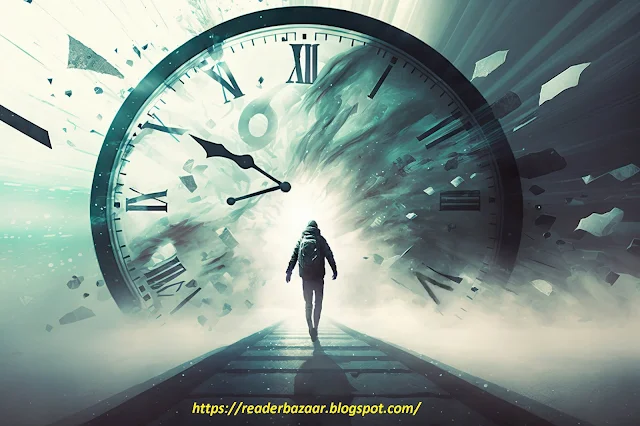What If Time Travel Were Possible? | Reader Bazaar
Time travel has long been a fascinating concept, often explored in science fiction, from classic movies like Back to the Future to modern-day series like Doctor Who. But what if it wasn’t just a fictional idea? What if time travel were actually possible? What could it mean for humanity, and how would our world change? Let’s explore this fascinating question, combining it with the spirit of storytelling and imagination that Reader Bazaar celebrates.
1. The Paradoxes of Time Travel in Fiction and Reality
One of the most intriguing aspects of time travel is the paradoxes it presents. Imagine traveling back to the past and changing something seemingly insignificant. Could one small act create a butterfly effect, altering the entire course of history? This is the famous grandfather paradox — if you go back in time and prevent your grandfather from meeting your grandmother, you might never be born. But if you’re never born, how could you travel back in time to change the past? This paradox raises fundamental questions about causality and the flow of time, topics that often inspire science fiction writers and are explored in the pages of books that you can discover on Reader Bazaar.
2. Historical Impact and the Potential for Change in Literature
If time travel were possible, the opportunities for altering history would be endless. Would we try to prevent catastrophic events, like wars or natural disasters? Could we undo mistakes that shaped the world, such as the burning of the Library of Alexandria or the assassination of historical figures? The ethical implications of such actions would be immense. Would we have the right to change history, or would it be better to let the past stay as it is, no matter how tragic?
At Reader Bazaar, we explore books that delve into these complex themes of history, ethics, and human nature. Through the lens of literature, time travel often becomes a tool for reflecting on human choices and their consequences.
3. The Ethical Dilemmas of Time Travel: A Book Lover’s Perspective
The ability to travel through time comes with complex ethical dilemmas. For example, would it be ethical to travel to the future to gain knowledge that could be used for personal gain? What if we learned the winning lottery numbers for the next 10 years — would it be wrong to exploit that information for financial success? And what if time travelers could bring futuristic technology back to the present day? Could this cause economic imbalances or give certain individuals or nations unfair advantages?
Additionally, the question of who controls time travel would be another point of contention. Would it be available to everyone, or would it be restricted to governments or powerful entities? The potential for misuse would be high, and regulations would need to be implemented to ensure that time travel wasn’t used for malicious purposes.
At Reader Bazaar, we often discuss books that address these types of ethical dilemmas and how authors use speculative fiction to explore complex moral questions.
4. The Future of Time Travel: A Journey Through Literature
If time travel were ever invented, the possibilities would be both exciting and terrifying. The ability to travel through time could reshape our understanding of reality, the universe, and even existence itself. But it would also demand new philosophies, new ways of thinking about the world, and perhaps even a reconsideration of our place within the timeline of the cosmos.
In the end, time travel challenges our notions of free will, destiny, and the fundamental nature of time. While the consequences of such an ability are still a mystery, one thing is certain — if time travel were possible, it would change everything we know about the past, present, and future. At Reader Bazaar, we are always exploring the ways literature allows us to consider such possibilities and reflect on the implications of the world we live in.




0 Comments